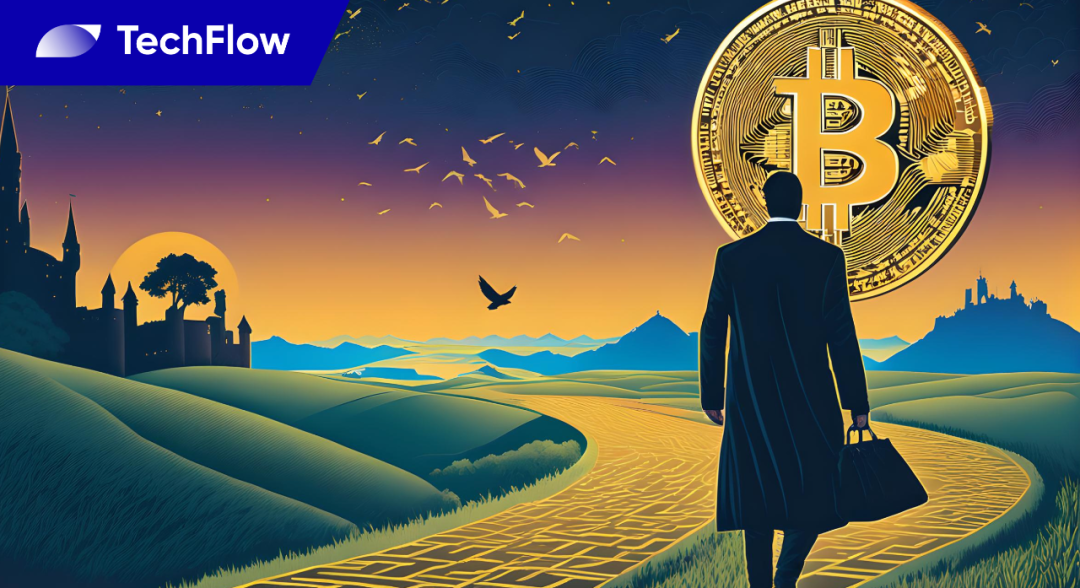The Bank of England declares war on third-party payments and digital tokens – in the form of British gentlemen
On June 20, 2019, Bank of England Governor Mark Carney gave a speech on the upcoming retreat from the Bank of England on the theme of “Promoting, Enhancing, Ensuring: New Finance for the New Economy” ( Enable, Empower, Ensure: A New Finance for the New Economy ). He talked peacefully, and there was no smell of medicine. He was quite gentlemanly in England. But in reality, this is the official announcement of the Bank of England's unpopular system. For this declaration of war, the Bank of England has been preparing for a long time. Although there are some problems in the middle, it is obvious that it has been learning and progressing. The author began to pay attention to the Bank of England's decision-making and behavior from 2016, understand the whole process, and understand that the Bank of England's decision is not easy, but the Bank of England has decided to go to war in order to protect the British national interest [5,9].

The Bank of England Governor’s farewell speech, he provoked a war without smoke
New economy needs new central bank
- Bitcoin prices are rising, and miners are in short supply
- The global telecommunications industry will usher in change, and companies such as IBM, China Telecom, and Consensys will jointly build a blockchain platform CBN.
- Exclusive interview with PwC EMEA Blockchain Leader: The development of cryptocurrencies requires a big project like Libra that requires the support of giants
In this speech, Mr. Carney expressed the most concerned issues, including the new economy. He proposed a new idea – "The new economy needs different central banks." One of the new measures is the central bank's preparation for opening RTGS and other foundations. Facilities to third-party payment systems.
He talked about the most important breakthrough in financial technology now in the payment system. He did not specify that the payment system is innovative, but Alipay, WeChat, Bitcoin and Ethereum are all new payment systems, not in the Bank of England system, so as early as 2016, the Bank of England proposed to issue digital currency. On September 8, 2016, the 2016 P2PFSY (2nd International Workshop on P2P Financial Systems 2016) conference was held in London, UK. The Bank of England’s Chief Cashier Victoria Cleland gave a keynote speech at the conference. She said that the current financial technology is greatly Changing the UK financial market, the rise of third-party payments, the growth of P2P transactions, the rise of crowdfunding models and other economic activities have brought huge changes to the UK economy, forcing the Bank of England to change its monetary policy and operational processes, and vigorously promote the issuance of digital currency. .
Digital currency is a tool of national monetary policy
The Bank of England proposes that digital currency is a tool of national monetary policy, and the monetary policy of the pounds and pounds can be different. For example, the pound involves zero interest rate lower limit, there can be very little but must be positive interest, but the number of pounds can have negative interest rates, so The economic stimulus will be even greater. Digital currency can make trading activities more efficient, with lower costs and greater visibility. The issuance of digital legal currency by the central bank can infuse the market with confidence and effectively regulate it.
In 2016, the Bank of England even released the digital coin model RSCoin proposed by University College London (UCL). Although the Bank of England later gave up the digital currency, it just gave up the digital currency model proposed by University College London and did not give up the whole. Digital currency plan.
The Bank of England’s real demand is regulatory power
Although the Bank of England has stated many reasons to issue digital legal currency (such as a new tool to establish monetary policy), the most critical reason is to take payment supervision back to its own hands:
● Third-party payments in the UK are becoming more and more important. Most of the UK's financial activities are not under the supervision of the Bank of England. This is a situation that the Bank of England does not allow, but there is no way to solve it.
● The problem comes from two aspects: 1) legal third party payment such as WeChat payment; 2) illegal bitcoin payment system.
The former can also be dealt with by law or administration. The Bitcoin system also evades supervision, and the Bank of England does not know how to manage it. More serious, the Bank of England does not understand this technology.
Traditionally, transactions between banks and banks in the UK have been guaranteed by the Bank of England. The Bank of England has decided to give the same guarantees to other similar financial institutions such as third-party payments, which is actually used against legitimate third-party payment institutions because The central bank can guarantee 100%, but third party payments cannot.
By issuing digital legal currency, the Bank of England is directly engaged in the fight against digital tokens, placing digital tokens directly into the financial system and protecting both parties. Because the digital currency has a central bank guarantee, if cross-border payment is made, it must win the bitcoin without the central bank guarantee.
| The Bank of England, with the status of the central bank, directly competes with third-party payments and digital tokens, indicating that the Bank of England is paying attention to this matter. It should be known that third-party payments are only private companies, and most of the digital tokens have not yet been legalized, but these "new technology" companies have caused the Bank of England to suffer for many years. This shows the importance of technology, forcing the Bank of England to finally put down the shelf and come up with the final "Zhenhai Shenzhen" to combat these unpopular systems. |
Don't forget, the Bank of England did not understand what the blockchain was in 2015, but the Bank of England is still very modest to learn from digital tokens, and the way they learn is to start the sandbox supervision program. By 2017, the Bank of England issued a report recognizing that blockchain technology has innovations, as mentioned in the author's article on sandboxing. When the Bank of England understood the blockchain technology, it really began to deploy methods to deal with digital tokens.
In order to get the supervision of the Bank of England, the Bank of England decided to pay the third party to open the RTGS system of the central bank, which was announced around 2017, but it has not been opened until now, this time Mr. Carney mentioned this in his speech. He said that the Bank of England is ready and ready to open to third parties.
The structure of the big central bank changes the ecology of the British banking community
This has changed the long-term financial landscape. Like many central banks in the world, the Bank of England only deals with banks and does not interact with non-bank institutions. Merchants must go through banks to visit the Bank of England. However, when the system in the Bank of England is opened to third-party payment systems, and even to other companies or individuals, the Bank of England has actually replaced the role of commercial banks, so some people call it "big central bankism," The idea put forward by the Bank of England, the idea was discussed a lot in 2016, but it has not been realized until now, indicating that it is still difficult to practice.
Bank of England learns American practice
In 2018, the Bank of England announced that it had abandoned the digital currency plan, and many people were disappointed. As the world's central bank's thought leader, the Bank of England took the lead to give up, of course, disappointing. But in fact, the Bank of England did not give up this plan, but learned the practice of IBM in the United States. IBM announced the issuance of stable currency in July 2018, found a commercial bank to cooperate, and then the US government FDIC guarantees it. This becomes a digital dollar. At that time, many people expressed doubts about whether this was a digital dollar, but IBM admitted in August 2018 that it was a digital dollar. In May 2019, the International Monetary Fund (IMF) also admitted that it was a digital currency. Confirmed the author's point of view published in August 2018.
Similarly, in early June 2019, 14 banks joined forces to implement five-country stable currencies, including the US dollar, the pound, the euro, the yen, and the Canadian dollar. According to a speech delivered by the Bank of England Governor before leaving the company, the pound stabilized the currency from the UK. The central bank guarantees, so this stable currency becomes the digital pound, which is also the digital currency.
In August 2018, the author predicted that other countries would definitely follow the same steps with IBM. Now the Bank of England is doing this, using non-central institutions to issue digital legal currency, but the government or the central bank guarantees that it is a small regional trial, and then extend the scope. IBM's digital dollar is guaranteed by the US government, and the British pound is issued by the Bank of England. This is also announced in this speech.
This way digital digital currency issuance and management will become a new trend, which is also the important message from Mr. Carney's speech.
Preparing to launch digital assets is the reason for issuing digital pounds
In addition, we should also think about why the Bank of England supports the digital pound. In addition to competing with third-party payment systems and digital tokens, is there any other purpose? What is the biggest use of digital currency? Is it possible for everyone to transfer funds to the digital currency at the time of the financial crisis? That's right, but the financial crisis will only happen once in a decade, and the big financial crisis will happen once in many years. The Bank of England’s digital pound is clearly not prepared for this.
The British Barclays Bank wants to issue digital legal currency, which is also supported by the Bank of England. This is a kind of digital asset, so we conclude that another important message conveyed by this speech is that the UK officially accepted digital assets!
Digital assets start with digital currency, and later there will be digital stocks, digital real estate, etc., which will open a new era of digital assets in human history, just like the US decision made in 2018 [2]. The world's two major technology powers, both accepting the digital economy dominated by blockchain, should be one of the biggest reforms in finance for so many years.
Will the UK real estate transaction be settled by the central bank of digital assets in the future? Where is the UK Digital Stock Settlement Center?
It is very difficult for the Bank of England to make this decision. Why?
- The Bank of England needs to expand the system, and such system engineering is very difficult;
- The Bank of England will replace the business of some commercial banks, change the British banking system, and touch the vested interests of many people;
- The Bank of England understands that digital currency is not the end, but the starting point, and there will be greater digital assets in the future. How should I play this game well?
Bank of England learning experience
But in any case, the Bank of England has made this decision, which makes us more admire the courage of this old capitalist country, the oldest central bank in the world, established in 1694, but in 2019, it is also the first The home announced the central bank with third-party payments and digital tokens declared war. In addition, the Bank of England has demonstrated the ability and courage to learn in many ways.
- The Bank of England has started a sandbox program and is humble to learn new technology. It is not because you are a government agency or a bank boss.
- The Bank of England’s study of the United States did not immediately establish a large-scale system to solve the problem, but now it has begun to solve it to solve some problems, rather than trying to step into the sky. The non-central bank (commercial bank) issues digital legal currency, and the Bank of England guarantees that it is the practice of the Bank of England, and it is done with the other six countries (this is the new eight-nation coalition in the financial world), gradually expanding and gradually expanding.
The Bank of England does not support Facebook Stabilizing Coins
The last important piece of information is the Bank of England's attitude towards Facebook's stable currency Libra. Mark said that the Bank of England approaches Libra with an open mind but not an open door. He also said that innovations such as Libra must set standards and regulations before they are released; it must meet the highest standards of prudential regulation and consumer protection [7, 8, 10]; it must address the issue of anti-money laundering; it must also be one An open platform for competitiveness. In fact, we can see that the Bank of England is opposed to Facebook's stable currency, but it is more arrogant. why?
Because the digital legal currency is the moat of the French currency, we said in the previous article that the protagonist of the currency war is "French currency + auxiliary stable currency", and the two fight side by side, instead of only the French currency alone [11]. Libra will certainly support the US dollar and is an aid to the US dollar. Since it is a tool for the US dollar, the Bank of England certainly does not support it. Each country will only support stable coins issued by its own country!

Digital legal currency is the moat of legal currency
The Bank of England wants to regulate Facebook's stable currency
Some analysts believe that Facebook will become the world's central bank, which we cannot agree with. Libra can't be the currency of the World Central Bank. Facebook can't be the world's central bank. Not only the Bank of England objections, but other central banks, including the Federal Reserve, will not agree. The World Bank and the International Monetary Fund will not agree. In fact, the Bank of England wants Libra to pass the supervision of the Bank of England's RTGS, the Bank of England's Red Cannon (RTGS) has emerged, is Facebook willing to accept its supervision? If you accept it, every transaction on Facebook will be seen by the Bank of England! The author used to describe the blockchain regulation by “walking the wolf and coming to the tiger” [1, 4]. Blockchain regulation is a stronger way than traditional system regulation, and it is also the action taken by many central banks after they understand the trend [6].
Foreign countries also believe that world currency competition has begun
At the same time that we issued a currency competition [11], foreign countries also issued a document indicating that world currency competition has begun. Their main point is that in the financial market, whoever moves fast will win, because speed determines everything [12]. And just like in a war, whoever moves fast will win. For example, in cross-border payments, blockchains are much faster than traditional systems.
Facebook currency has opened up the world currency competition. In this new currency competition, blockchain technology is a new weapon with fast speed! In today's five tigers have been impetuous and the soldiers are under the city, the abandonment of blockchain technology is like the warriors with large swords and spears in the Qing Dynasty. They face the guns of the Eight-Power Allied Forces with flesh and blood, but their courage is commendable! [3]
references
[1] Cai Weide, “The blockchain application is not a wolf but a tiger is coming”, https://mp.weixin.qq.com/s/dFmVzO8hiDT5i_-s3c8PVQ
[2] Cai Weide et al., “The dollar digital law currency was born, are you ready?”, https://mp.weixin.qq.com/s/n3olvAeCt9SB55sPD5ENhQ
[3] Cai Weide, “Panda-CBDC Central Bank Digital Currency Model”, 2016, https://mp.weixin.qq.com/s/VMF1R9q2D61-2R3neo6lGg .
[4] Cai Weide, “ True and false stable coins! Blockchain needs to be supervised | DeepHash column”, https://mp.weixin.qq.com/s/gCZqo4kjZ0Npk0FV82kjPQ
[5] Cai Weide, Digital Society and Blockchain Lab, “New Deployment of UK National Strategy–New Application of Blockchain Technology ” , 2016.12.01, https://www.docin.com/p-1821776638.html
[6] Cai Weide, “The Sandbox Technology for Regulating Technology”,
https://mp.weixin.qq.com/s/B1QNPVayOSQd6HTx0pbyZg
[7] Cai Weide , Jiang Xiaofang, “The rise of the blockchain industry, this time is true, but there is no supervision preparation?| DeepHash column”, https://mp.weixin.qq.com/s/gduYj-YLRKT8rLIciBJ3-w
[8] Cai Weide, Jiang Xiaofang , “The rise of the blockchain industry, this time is true, but is there any regulatory preparation? (Bottom) | DeepHash column”, https://mp.weixin.qq.com/s/7wskLKHNOSiZcTBfYU6Hzw
[9] Xiaofei, “[FX168 Interview] Cai Weide, Distinguished Professor of Beihang National 'Thousand Talents Program”, talks about the application and prospect of digital currency technology in the Bank of England, 2016.09.28, https://news.fx168.com/bank/ Boe/1609/1989634_app.shtml?from=timeline&isappinstalled=0
[10] Lin Jiayi, “Countries supervise the siege of Facebook 's coinage , the Fed’s solidarity! What kind of war will this be? ” , 2010.06.20, https://mp.weixin.qq.com/s/uRV3Qi_fk54nmaLWHyE69Q
[11] Cai Weide, Jiang Xiaofang, “The new currency competition is coming? Yes!”, 2014.06.21, https://mp.weixin.qq.com/s/xqO0MDZiET4zqsnljAfWTQ
[12] Why Facebook's crypto Libra may spark a currency war soon, June 20, 2019, https://www.cryptopedic.com/news/why-facebooks-crypto-libra-may-spark-a-currency-war-soon /
Author: Cai Weide Northern digital society and the block chain laboratories, day-Tech, National Data (Guizhou) Integrated Block Chaining Internet lab test area, the day the people (Qingdao) International Institute for sand box, CCID (Qingdao) block Chain Institute
Jiang Xiaofang, Ph.D., Beihang University of Computer Science, Chartered Financial Analyst (CFA), Beijing Financial Analyst Association
Jiang Jiaying, Ph.D., School of Law, Emory University, USA
We will continue to update Blocking; if you have any questions or suggestions, please contact us!
Was this article helpful?
93 out of 132 found this helpful
Related articles
- The young man who didn’t buy Bitcoin for $3,000 bought it when he was 10,000.
- Analysis: Bakkt is expected to be approved in just 10 days
- Zhu Jiaming: The Super Experiment of Currency Internet——Libra Analysis
- Cross-border payment, three countries
- Roller coaster market, Algorand really played a "funds disk"?
- Bitcoin hit $12,000, and this crazy situation is reminiscent of 2017…
- Fragile Libra Association: Regulators are eyeing, no one pays for nodes inside






